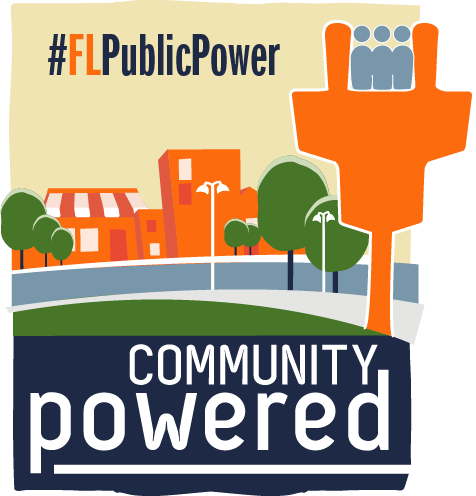Group Says FPL Should be Required to Refund Money
In a high-stakes case, attorneys for consumers and two business groups are asking state regulators to require Florida Power & Light to refund as much as $736 million to customers and are calling for a review of the utility’s base electric rates.
The state Office of Public Counsel, which represents consumers in utility issues, the Florida Retail Federation and the Florida Industrial Power Users Group filed a petition Wednesday at the state Public Service Commission. In part, the petition focuses on tax savings under last year’s federal tax overhaul and a contention that FPL has exceeded a limit on profits included in a 2016 rate settlement.
“The issue presented in this petition is the determination of the fair, just, and reasonable rates to be charged by FPL following the windfall cost reduction resulting from the (federal tax overhaul),” the petition said. “Several provisions of (state law) require the commission to set rates for FPL that are fair, just, reasonable, and not unduly discriminatory, and provide substantially affected parties the opportunity to petition the commission seeking rate adjustments to ensure that a public utility’s rates are fair, just, and reasonable.”
But FPL quickly fired back Thursday, saying in a statement that its rates are among the lowest in the nation and that the petition, if approved, would result in higher electric rates. A spokesman also said the utility has not exceeded a maximum “return on equity,” a closely watched measure of profitability, included in the 2016 rate settlement.
“We are proud to serve our customers, and on behalf of all of them, we intend to fight this politically motivated action,” the utility said in a statement. “If OPC, FRF and FIPUG (the Office of Public Counsel and business groups) are successful with this, our customers will be paying higher rates and massive litigation costs. Nothing about this action seems logical, sensible or in the best interests of customers.”
The petition involves a complicated mix of accounting issues, the 2016 rate settlement, the federal tax overhaul and FPL’s Hurricane Irma restoration costs.
Base rates are perhaps the most-controversial issue in utility regulation, with rate cases typically taking months and requiring extensive investigation of utility finances and operations. The Public Service Commission approved the 2016 settlement, which froze FPL’s base rates with some limited exceptions. The Office of Public Counsel and the Florida Retail Federation were parties to the multi-year settlement.
The settlement included numerous provisions, including setting a maximum return on equity of 11.6 percent and approving FPL’s use of a financial reserve. The petition filed Wednesday said the purpose of the reserve was “to provide FPL flexibility to manage its business to address fluctuations in costs and other general or cyclical risks affecting earnings.”
Hurricane Irma caused massive damage across the state in September 2017, with FPL saying it had about $1.3 billion in storm-restoration costs. In late 2017, Congress passed the federal tax overhaul, which, among other things, reduced corporate income-tax rates from 35 percent to 21 percent.
Florida utilities have long been allowed to pass along storm-restoration costs to customers. Wednesday’s petition said FPL paid its Irma storm-restoration costs and made an accounting entry to charge off those costs against the reserve created in the 2016 settlement. It then planned to replenish the reserve with savings from the tax cuts, the petition said.
But the Office of Public Counsel and the business groups contend that nothing in the 2016 settlement allowed the “resurrection” of the reserve after it was exhausted.
They argue that FPL should instead be required to pass through the tax savings to customers on monthly bills, with the petition saying the savings could be as much as $736.8 million. Also, the petition contended FPL is exceeding the maximum allowed return on equity and requested that the commission “initiate a comprehensive review of FPL’s base rates” and order a permanent rate reduction based on the tax savings.
FPL’s statement Thursday, however, accused the Office of Public Counsel of violating the rate settlement and siding with “large corporations that want to force higher rates on FPL’s residential and small business customers. The approved rate agreement — which OPC and the Florida Retail Federation signed on to just two years ago — benefits all FPL customers by enabling long-term investment in clean energy infrastructure, hurricane hardening, smart technology and more, while preventing the need for general base rate increases through at least 2021.”
“When Hurricane Irma pummeled the state in 2017, FPL executed the fastest, most massive restoration in U.S. history — an unprecedented effort that cost $1.3 billion,” the statement said. “Normally, hurricane costs are passed through to customers in the form of a rate increase, but FPL acted quickly to avoid this by leveraging two years of federal tax savings to cover the cost. Clearly, the company’s federal tax savings directly benefitted customers, not shareholders.”
Reposted with permission from The News Service of Florida
 Enter your email address in the
Enter your email address in the 